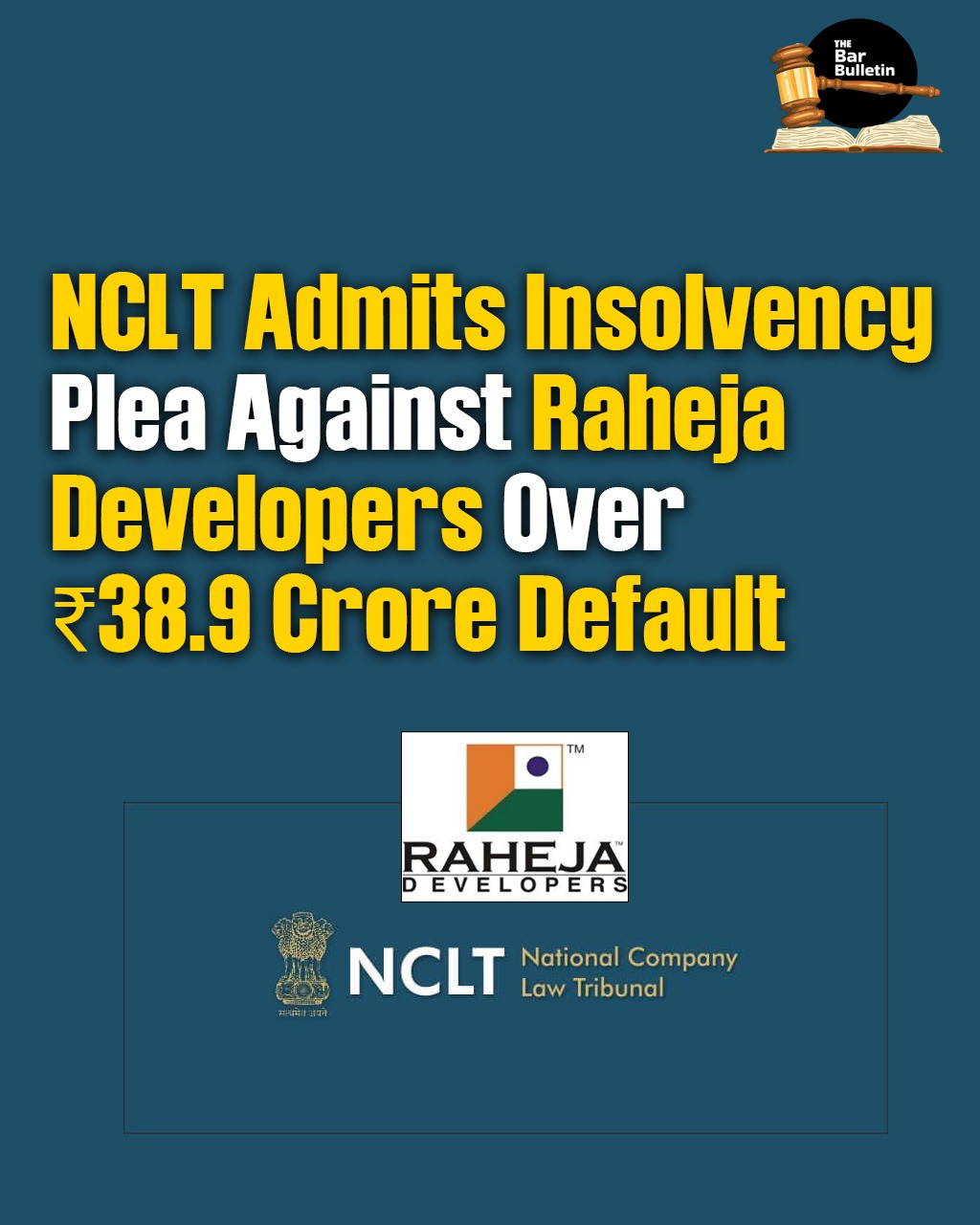The National Company Law Tribunal (NCLT), New Delhi Bench, Court-IV admitted a petition under Section 7 of the Insolvency and Bankruptcy Code, 2016 (IBC) filed by 130 homebuyers of Raheja Krishna Housing Scheme, Sector-14, Sohna, Gurugram, against M/s Raheja Developers Ltd. The petitioners, represented by Advocate Manu Chaturvedi, sought initiation of the Corporate Insolvency Resolution Process (CIRP) on account of the developer’s failure to deliver flats despite substantial payments.
The homebuyers alleged that Raheja Developers collected amounts aggregating ₹17.77 crore as principal, with total default, including 15% contractual interest, reaching ₹38.89 crore. The project, launched under Haryana’s Affordable Housing Policy, 2013, was licensed by the DTCP in 2014 and registered with the Haryana RERA in 2017. As per statutory requirements and the Builder Buyer Agreements (BBA), the project was to be completed and possession handed over by June 2019. However, the Tribunal noted that the construction remained incomplete, and site visits revealed negligible progress.
It was further highlighted that most buyers had paid 90–100% of the consideration, yet possession was not given. The applicants also pointed to the one-sided and arbitrary terms of the BBAs, which they had no choice but to sign. Relying on the Supreme Court judgment in Pioneer Urban v. Geetu Gidwani Verma, CA No. 1677 of 2019, the petitioners contended that such unfair agreements amounted to an unfair trade practice, and the amounts paid constituted “financial debt” under Section 5(8)(f) IBC.
On the other hand, the Corporate Debtor, represented by Senior Advocate P. Nagesh, denied liability. It contended that delays were attributable to non-provision of external infrastructure such as roads, water, and sewerage by government agencies, which were outside the developer’s control and covered under the force majeure clause. The company also cited disruptions caused by the COVID-19 pandemic. It argued that the project was financially viable, with ₹107 crore already spent and receivables sufficient to meet the balance costs, and that Raheja Developers is a solvent company with a strong record of real estate and government housing projects.
After hearing both sides, the NCLT held that the petition satisfied the statutory threshold under the 2nd proviso to Section 7(1) of IBC, which requires not less than 100 homebuyers or 10% of allottees to jointly file. Even as per the developer’s own figures, the project had at least 1,375 allotments, and the present application by 130 buyers met the requirement. The Tribunal also found that the debt was within limitation, clearly constituted a default, and the disputes raised by the company could not override the statutory right of homebuyers under IBC.
Accordingly, the NCLT admitted the petition and initiated CIRP against Raheja Developers Ltd.. It appointed Mr. Brijesh Singh Bhadauriya as the Interim Resolution Professional (IRP). The Tribunal also imposed a moratorium under Section 14 IBC, prohibiting suits, recovery proceedings, asset transfers, and enforcement of security interests against the company, while directing the IRP to make a public announcement within three days.
The Tribunal also noted that in an earlier matter Vipul Jain v. Raheja Developers Ltd. (IB) No. 239(PB)/2023, insolvency proceedings had been confined to a specific project “Raheja Shilas (Low Rise)”. However, the present petition was independently maintainable and, given the defaults and non-delivery of units, merited admission.
Appearances:
For the Applicant : Mr. Manu Chaturvedi, Adv.
For the Respondent : Mr. P. Nagesh, Senior Adv.
Ms. Manmeet Kaur,
Mr. Rohan Anand, Advs.



